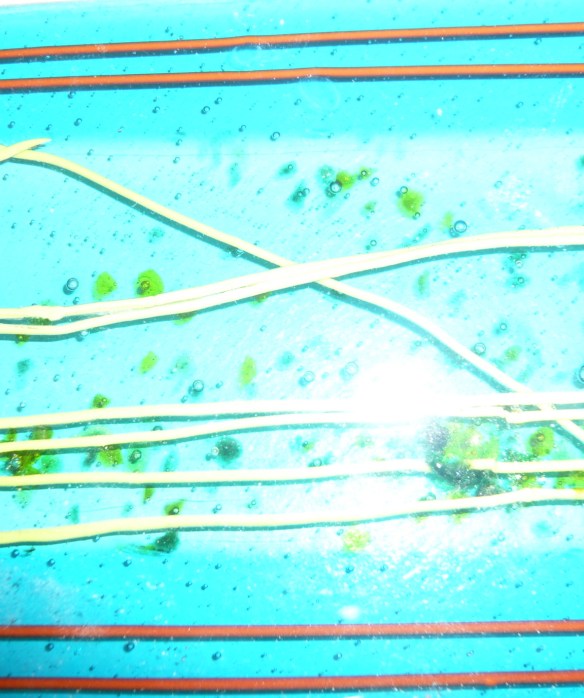 What a lovely bit of instruction we are given: Give thanks. Offer up the first fruits in gratitude and appreciation for the gifts of the universe. For the cycles of nature, for evolution both physical and spiritual, and for the sheer joy of being able to.
What a lovely bit of instruction we are given: Give thanks. Offer up the first fruits in gratitude and appreciation for the gifts of the universe. For the cycles of nature, for evolution both physical and spiritual, and for the sheer joy of being able to.
We should all do it more often.
Also, Moses says that only now, forty years after leaving Egypt, have the people attained “a heart to know, eyes to see and ears to hear.”
It takes a long time to develop healthy relationships with our senses. Newborns are one big mouth in a noisy, busy world. As we grow, our other organs become informative, fun, useful, grounding, energizing, distracting. Windows and doors.
Sometimes we castigate ourselves for our senses’ seemingly endless desires: feed me, touch me, show me. Bless my ears, eyes, nose with lovely sounds, and sights, and smells.
They are sources of great joy and great pain. We love, and make love; we hurt and grieve when great loves wither or die. We see great beauty; we witness great suffering. We smell roses; we smell death and decay. We hear symphonies; we hear cries of pain.
One of the teachings of this time is that we’re supposed to give gratitude for all of these. Not just for what looks, sounds, tastes, feels, or smells pleasing. But for the opportunity discern what’s good and righteous, and what is not. And for the chance to learn how everything affects us, whether we’re lusting after the wrong partner or more chocolate mousse, or trying to better our souls.
With luck or spiritual evolution we’re moved to take action against what feels wrong and discordant. To do tikkun olam, helping heal the world, and ourselves along the way. Giving thanks for the opportunity to become better people. Even if the menu is more bitter than we’d design on our own.
Part of this teaching is about being kinder to others as well as yourself. A reminder that every time you receive a gift you should to set some aside in gratitude. Not on some altar, but for the homeless guy on the corner, or the non-profit that helps manifest your values.
This is a time to open the cocoon of your life. As part of doing t’shuvah (reconnecting with your holiness), take a fresh look at how you live. Not just in your little world, the home, garden, and friends that bring you flowers, birdsong, and fresh tomatoes. But the more complicated world you share with the rest of us, with those who are hungry for the fruits of your compassion.
Give gratitude for your life in new ways. In ways that matter. To give back, give thanks. Plant seeds that will feed you and yours and also others and theirs. Offer up not only your extra zucchini but also your time, your caring, your willingness to see, hear, and help. Use all your senses to know what needs to be done. Let your heart open, and respond with action.
Exercise: Think of one thing you can do this week to give gratitude in a new way, especially one that’ll connect you with someone you do not yet know.
 In the psychological thriller Descent, author Tim Johnston sets up several interlocking pairs of troubled relationships, mostly father /son, but there’s just enough pervasive misanthropy and sense of imminent threat, that you’re just never quite sure when everything’s gonna erupt. And then, hope against hope, with not a shed of evidence to even hint you should imagine, you find yourself rooting for one of the meanest ones to become a hero, to be moved by sense of humanity you’ve had no reason to believe is there.
In the psychological thriller Descent, author Tim Johnston sets up several interlocking pairs of troubled relationships, mostly father /son, but there’s just enough pervasive misanthropy and sense of imminent threat, that you’re just never quite sure when everything’s gonna erupt. And then, hope against hope, with not a shed of evidence to even hint you should imagine, you find yourself rooting for one of the meanest ones to become a hero, to be moved by sense of humanity you’ve had no reason to believe is there.





